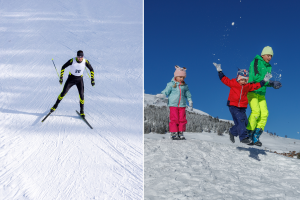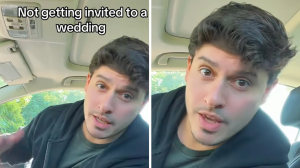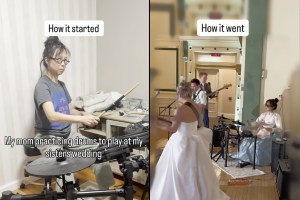Have you seen many movies lately with black superheroes as the lead character?
My guess would be that you probably haven’t, but there are been a few. Out of the 171 superhero films made since 1920, only 10 of them feature black superheroes as the lead.
However, with the success of Falcon and Black Panther in the Marvel cinematic universe, audiences are incredibly excited about the upcoming release of the “Black Panther” solo film in 2018 too.
Since the 1990s, those 10 movies with black superhero leads have actually grossed over $1 billion.
That’s nearly an average $100 million per film, which is a lot considering many of the well-known black superhero films debuted in theaters during the 1990s (and lead characters such as Spawn and Blade did not have the same universal name recognition as Spider-Man or Superman). Of course, all movies with black characters at the helm don’t turn into box office gold (see “Blankman,” “The Meteor Man,” and “Steel”), but the need for more diversity in film adaptations of superheroes is pretty obvious.
In fact, it looks like we might be trending toward inclusivity in film too.
A 2015 study by the Ralph J. Bunche Center for African American Studies at UCLA analyzed the top 200 theatrical film releases in 2012 and 2013, and the results suggested that increasingly diverse audiences prefer diverse film and television content.
Films with relatively diverse casts earned the highest money in ticket sales in 2012 and 2013. In 2013, the 28 films that had casts with 21%-30% minority actors earned a median global box office total of $143 million versus the median box office for the 50 films that were 10% minority or less, which was $53.2 million.
All of this suggests that moviegoers and comic book fans are going to be more than welcoming to successful depictions of black superheroes in the future, which is awesome.
Here are five black superheroes that could add diversity (and great storylines) to the comic book movie market.
1. Luke Cage
In the case of Luke Cage, black (literally) doesn’t crack. Equipped with unbreakable skin and superhuman strength, not only does Luke Cage boast a storyline that includes narratives of struggles that plague black Americans, but the character also has story arcs of betrayal, redemption, and love to which any moviegoer or comic book fanatic can relate.
Cage, a former gang member, was falsely imprisoned for a crime he didn’t commit and received his powers through an injection, similar to the super soldier serum that created Captain America, while in jail. With a series set to premiere on Netflix in September, it might be only a matter of time before you see Luke Cage on the big screen.
2. Bumblebee
Screenshot via
Super Hero Girls/YouTube.
Who is Karen Beecher-Duncan without her bumblebee-themed suit? A genius, inventor, scientist, and DC’s first black female superhero. Bumblebee’s powers come from her intellect, which she used to create her own high-tech suit of armor that gives her the power to fly, to shoot sonic blasts, and to shrink. Even in a shortage of superheroines in film, audiences and studios have shown via “Ant-Man,” and Ant-Man’s upcoming sequel, “Ant-Man and the Wasp,” there may be room for another bug-themed superheroine who can rock a beehive hairdo and espouse some #blackgirlmagic too.
3. Misty Knight
She’s Coffy in comic book form. Misty Knight is one badass, strong black woman who you don’t want to mess with. Knight is an exceptional markswoman, hand-to-hand combat expert, and a former member of the NYPD. Knight lost her arm after she stopped a terrorist attack that targeted a bank, and she was later awarded for her bravery by Stark Industries in the form of a cybernetic, vibranium-made bionic arm that gives her superhuman strength. Knight’s storyline includes hunting superheroes who did not comply with the Superhuman Registration Act, and she would make the perfect addition to the Civil War storyline.
4. Miles Morales
Screenshot via
Explained/YouTube.
We may be a long way from a film adaptation of the Miles Morales storyline, but one can only hope to see what a black and Latino, Brooklyn-born and raised, Spidey movie would look like. Morales is similar to Peter Parker in that they both can outwit nemeses and friends, but Morales has different anxieties than Peter Parker does. Morales deals with an internal struggle of questioning whether the demons of his father and uncle (both petty criminals) are hard-wired into his DNA, unlike Parker who grows up with a wholesome Aunt May and Uncle Ben. The Morales storyline is one that anyone who grew up with family struggles can connect with.
5. Spawn
I know. We’ve seen Spawn before, but after the success of the R-rated “Deadpool,” maybe, just maybe, we can get a dark, gritty, honest-to-Spawn, R-rated film? Todd McFarlane has finished a screenplay and is shopping it around Hollywood. Spawn has everything that a superhero needs too: tragedy, action, and drama. Many of us still remember the popular 1997 film version of the antihero starring Michael Jai White, and with White’s performance in the movie “Blood and Bone,” White still has what it takes to make a kick-ass superhero.
It’s hard to predict what the next box office success will be, but diversity on the screen is just as important as diversity off the screen.
Why? Because when diversity wins, everyone wins. Everyone should be able to see someone like themselves on screen. The greatest power a superhero has is the ability to inspire kids to believe they can fly.

























































